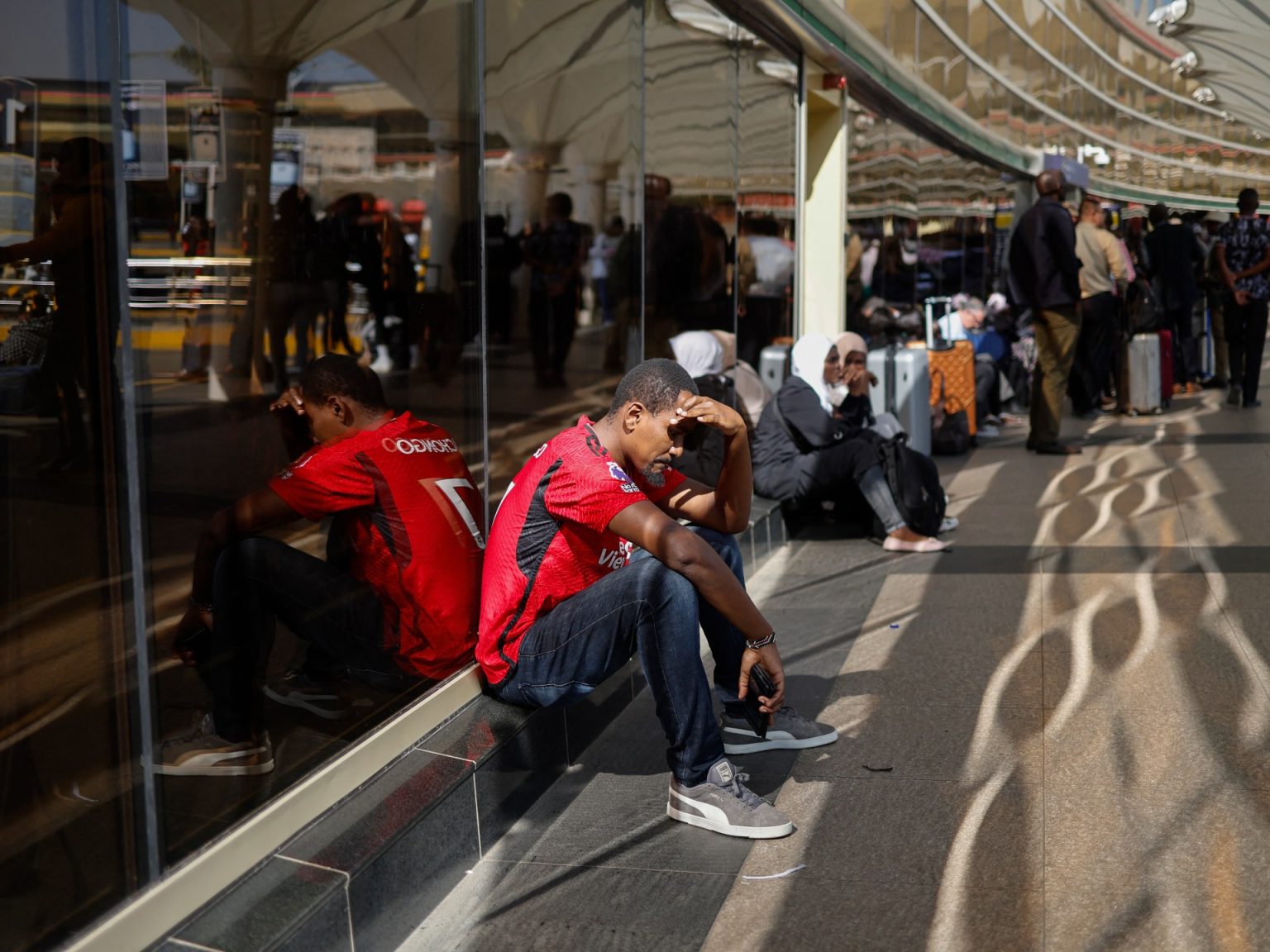Hundreds of staff at Kenya’s main airport, Jomo Kenyatta International Airport (JKIA), have gone on strike in protest of a planned buyout by India’s Adani Group. The strike began on Tuesday night and continued into Wednesday, disrupting flights and leaving passengers stranded. The planned deal would involve leasing the facility to the Adani Group for 30 years in exchange for a $1.85 billion investment to renovate the airport and construct a new runway and terminal. Critics fear that the takeover would result in job cuts and worsened employment conditions, as well as deny taxpayers future profits from the airport which is a significant contributor to Kenya’s GDP.
The Kenya Airport Workers Union is leading the strike, with union leader Moses Ndiema stating that they will continue striking until the deal with Adani Group is dropped. The workers believe that the deal is detrimental to Kenya and must be stopped. Despite some minimal operations resuming at the airport, there have been long delays and flight cancellations, causing frustration among stranded passengers. The Kenya Airports Authority is working to normalize operations and has advised passengers to contact their respective airlines to confirm flight status.
Francis Atwoli, secretary-general of the Central Organization of Trade Unions, expressed that the strike could have been avoided if the government had listened to the workers’ concerns. The workers are seeking written assurances that their jobs will remain protected and are demanding that the government uphold labor laws to ensure job security. The High Court has temporarily halted the implementation of the deal until a case filed by the Law Society and the Kenya Human Rights Commission is heard, with a final verdict pending.
Despite being one of Africa’s busiest air hubs, JKIA has faced challenges such as power outages and leaking roofs. The government has stated that the airport operates above capacity and requires modernization, but emphasizes that it is not for sale. Adani Group’s proposed upgrades include adding a second runway and upgrading the passenger terminal, with the aim of improving operations at the airport. The government has also mentioned a possible public-private partnership for the airport’s upgrade, but no decision has been made on whether to proceed with this plan.
With tourism playing a significant role in Kenya’s economy, the disruption at JKIA due to the strike and planned buyout raises concerns about the impact on the country’s GDP. The airport is vital for facilitating travel and cargo transportation, contributing to economic growth through tourism and trade. The ongoing strike highlights the importance of ensuring that labor rights are upheld, and that decisions regarding key infrastructure projects are made transparently and with the best interests of the workers and the country in mind. The resolution of the dispute at JKIA will have implications for Kenya’s aviation sector and overall economic stability.













